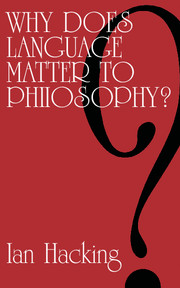Summary
The most influential logic book after Aristotle and before the end of the nineteenth century is Logic, or the Art of Thinking. It was written mostly by Antoine Arnauld and Pierre Nicole, and was published in Paris in 1662. Both men were associated with the Jansenist sect, a protesting and largely intellectual group that remained within the Catholic Church, although not without the occasional papal denunciation. Their retreat was a French monastery at Port Royal, and they published anonymously, so this book is commonly called the Port Royal Logic. Although it professes to be a few easy lessons by which a tutor may instruct a young gentleman, the work went through an enormous number of editions, and was the prescribed logic text at Oxford and Edinburgh quite late in the nineteenth century. Its influence is comparable to that of its sister volume, the 1660 Port Royal Grammar, which, as we shall see in Chapter 6, has been taken, by Noam Chomsky, as the very model of profound linguistic enquiry.
The format of many a commonplace philosophical treatise at least until the time of J. S. Mill is a book in four parts, patterned after the Logic. Immediate satellites of the work were Malebranche and Locke, and one occasionally needs the book to understand Berkeley too. Just like the Logic, Berkeley begins his introduction to his Principles by telling us that he is going to discuss language, but immediately takes up the topic of ideas.
- Type
- Chapter
- Information
- Why Does Language Matter to Philosophy? , pp. 26 - 33Publisher: Cambridge University PressPrint publication year: 1975



